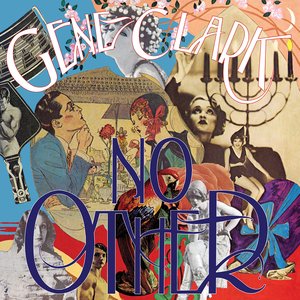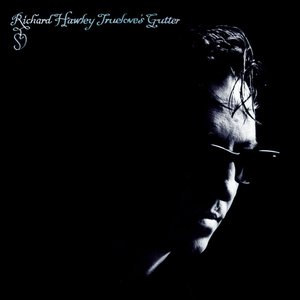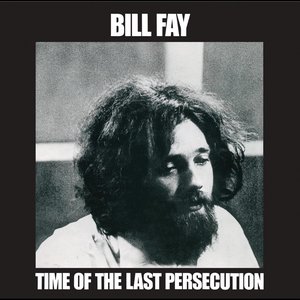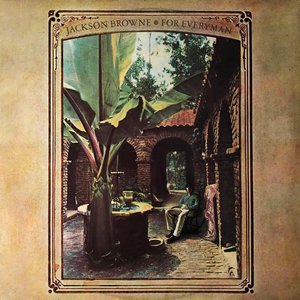Wiki
-
Data de lançamento
1 Janeiro 2001
-
Duração
10 faixas
Jackie Leven returns with an effort that is every bit as poignant and moving as Fairy Tales for Hardmen and as lush and textured as Night Lilies, proving his last album, Defending Ancient Springs, an aberration – albeit a very fine one that began his successful collaboration with David Thomas – from his own carved out path as Scott "Soul Brother Number One." Creatures of Light and Darkness is as gorgeously produced as any Leven record, and perhaps more lush than most. A usual, the poetry is beyond the reach of virtually any other songwriter on the planet, with the possible exception of Leonard Cohen, and the tunesmith craft is both accessible and intricately assembled. The set opens with the sound of the wind as it meets the drum and a melodeon (courtesy of David Thomas) in "My Spanish Dad," an up-tempo elegy for Leven's father. He tells his father's story of attending auctions, driving his Cortina, his hard-working countenance, and his flawed but golden heart. There is no judgment, no bitterness, only the acceptance of lineage and passage. With horns covering the refrain, and the large half-Celtic/half-mariachi band carrying Leven's bigger than life vocal. As a pedal steel guitar whines high and lonesome in the background, and mandolins cascade in time with the drums, his reverie isn't maudlin or nostalgic, but a regal tribute to the ghost of a complicated man, now a ghost, who has left his mark indelibly. In the cricket sung intro to "Exit Wound," Leven brings his second thread of the nocturnal tapestry to bear. With a stunning piano intro matching his layered vocals laying out a desolate set of images before Leven slips in with a Leon Ware-styled vocal caressing the backbeat, telling a song of desolation as true and forlorn as a seagull's cry against a gray sky. When Deborah Greenwood's wonderful voice chiming in the chorus: "White bars of heaven are keeping me from you/I know you're living in hell but what can I do." Indeed it carries Leven's own line "If you could look inside you'd see a body without a soul." The track with its soul-music overtones and jazz ostinatos is over before you know it, filling the vibrational silence with desolation. What comes next is perhaps the most controversial and heartfelt song Leven has ever written. "The Sexual Loneliness of Jesus Christ" begins with a synthesizer and a recorded, heavily brogued voice relating a proverb of disappearance before the cut time rhythm carries Leven's "one-two" lyric of Jesus meditating on his bewildering predicament. As the guitars begin to crunch and wail above the mandolins and rhythm section and violins swirling around in the mix like vultures hovering before a final descent, Deborah Greenwood plays the part of Jesus' archetypal lover and mother, the woman, not the virgin: "And I miss my baby/I miss him all through the night/they're gonna kill my baby/and the stars are shining bright." The entire tune disintegrates melody, harmony, and rhythm in a cacophonous roar of electric guitars before entering into a sampled refrain of "Desolation," from the previously heard brogue's throat. In "The Hidden World of She" Leven warns against the betrayal of women in a folk song turned into a Motown-style (á la Marvin Gaye) gospel exhortation. The musical meditations Leven puts forth on the relationships between men and women, and men to themselves, are searing testimonies from the front. That such powerful psychic material can be floated on the wings of such glorious arrangements and exacting songcraft in a minor miracle. Even in the workman-like songs, the care and precision Leven puts into his production and singing raises them above the high-quality bar. A keen example is the bluesy, souled-out "Rainy Day Bergen Women," with David Thomas. It becomes painfully obvious that Leven has listened aplenty to the girl groups of the early '60s. His melodies are erected along classic rock & roll lines, infused with a beautifully unadorned Celtic folk strain. Instruments of all types slip in and out of the mix, caressing the guitars and drums that caress his mellifluous voice. When the soul influence becomes overt, Leven makes light of it while pulling it off just the same with swinging pop flourishes and easy, in-the-pocket delivery ("Friendship Between Men & Women"). Leven's records in general, and this one in particular, are doused heavily in ambiences and atmospherics. His textured, intricately-layered production maximizes the emotional transference of his lyric and its delivery. The disc closes with "Wrapped in Blue"; the simplest track on the record is also pointed in its expression of heartbreak and desire, its forlorn loneliness in the midst of a relationship going south. With acoustic guitars and keyboards shimmering in the foreground and strings on the backing matte, Leven states his case plainly and without adornment. This is the other side of his single from the last album, "Universal Blue." This is the moment that leads to separation and anguish, and Leven puts it across better than any songwriter since Gaye did on the Here, My Dear album. I wish soul-jazz guitarist Phil Upchurch were caressing Leven's devastated, grief-stricken vocal with his rounded serpentine lines, but that's just personal preference and 20/20 hindsight. Two final points about this record are painfully obvious: the wide-ranging use of Greenwood's voice on this album sets it apart from all of Leven's other work – even the records she appears on. Like Lotte Lenya, the legendary German singer, Greenwood's voice is plaintive and detached; at times it feels almost untrained. But it is far from raw: its coolness is sensual and a perfect counterpart to Leven's own very expressive instrument. The other thing is her diction: it's phenomenal. Greenwood is so necessary because she lends intense focus to the emotional nature of each track; she brings Leven's lyrical and vocal loping to a still point and lets it take root. Leven is an artist that takes great care to produce artistic yet very accessible pop records of uncompromising quality and merit – musically and lyrically. In addition, he is a better singer than any male vocalist out there, bar none, and has an extensive back catalog. Yet he remains a marginal figure among the populace in his native British Isles, making his living primarily in the Netherlands and Germany. But the most puzzling question of all is why he remains a completely unknown figure on this side of the Atlantic, where we lavish accolades and awards on many pop stars that unwittingly attempt to do, on some small scale, a version of what Leven does without an ounce of the class or ability. (It would not be a stretch to think of Leven as a songwriting Frank Sinatra of the Celtic soul set.) Until this changes, however, lift a glass or two to celebrate the monumental achievement that is Creatures of Light and Darkness.
As descrições de álbuns na Last.fm podem ser editadas por todas as pessoas. Sinta-se à vontade para contribuir!
Todo o texto inserido pelo usuário nesta página está disponível sob a licença Creative Commons Attribution/ShareAlike; termos adicionais podem ser aplicados.











